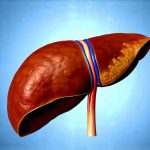The liver is often called the workhorse of the body, and for good reason. It performs over 500 vital functions, including detoxification, protein synthesis, nutrient absorption, glycogen storage, and hormone regulation. This constant activity can put a significant strain on the organ, making it vulnerable to damage from poor diet, environmental toxins, excessive alcohol consumption, and even chronic stress. Supporting liver health isn’t just about addressing existing problems; it’s about proactively safeguarding this essential organ for long-term wellbeing. A dietary approach focused on providing the nutrients the liver needs to thrive is a powerful step towards optimal health.
Many people don’t realize how significantly diet impacts liver function. While fad “liver cleanses” often promise quick fixes, true liver support comes from consistent, nourishing food choices. Incorporating foods rich in antioxidants, specific vitamins and minerals, and compounds that aid detoxification processes can make a substantial difference. This isn’t about deprivation or restrictive diets; it’s about making informed selections that naturally support the body’s inherent ability to heal and regenerate. The goal is to lessen the liver’s burden and provide it with the resources it needs to operate efficiently, promoting vitality and overall health.
Dietary Strategies for Liver Support
A cornerstone of liver-supportive nutrition is focusing on whole, unprocessed foods. Minimizing processed foods, sugary drinks, excessive saturated and trans fats, and refined carbohydrates reduces the workload on your liver as it attempts to process these difficult substances. Instead, prioritize a diet abundant in phytonutrients – naturally occurring compounds found in fruits and vegetables that offer powerful antioxidant and anti-inflammatory benefits. These phytonutrients help protect the liver from damage caused by free radicals and oxidative stress.
The Mediterranean diet model offers an excellent framework for liver health. It emphasizes plant-based foods, healthy fats (like olive oil and avocados), lean proteins (fish and poultry), and moderate amounts of dairy. This dietary pattern provides a wide range of nutrients that support detoxification pathways and reduce inflammation. Remember hydration is also critical; adequate water intake helps the liver flush out toxins efficiently.
Beyond general dietary guidelines, specific foods stand out for their liver-supportive properties. Cruciferous vegetables like broccoli, cauliflower, Brussels sprouts, and kale contain compounds that enhance phase II detoxification enzymes in the liver – these enzymes are crucial for neutralizing harmful toxins. Garlic and onions contain sulfur compounds which also support detoxification processes, while beetroot is rich in antioxidants called betalains that protect against oxidative stress. Incorporating these foods regularly can significantly bolster your liver’s natural defenses.
Foods to Prioritize
- Artichokes: These are known for their ability to stimulate bile production, aiding digestion and helping the liver remove toxins.
- Grapefruit: Contains naringenin and naringin, antioxidants that may protect the liver from injury. (Caution: Grapefruit can interact with certain medications; consult your doctor.)
- Berries: Rich in antioxidants like anthocyanins, which combat oxidative stress and inflammation. Blueberries, strawberries, and raspberries are excellent choices.
- Leafy Greens: Packed with chlorophyll, a powerful detoxifier, and essential vitamins and minerals. Spinach, kale, and collard greens are particularly beneficial.
- Nuts & Seeds: Especially walnuts and flaxseeds, provide healthy fats, antioxidants, and fiber for overall liver health.
The Role of Healthy Fats
It’s often misunderstood that all fats are bad for the liver. In fact, healthy fats play a vital role in its function. Omega-3 fatty acids found in fatty fish (salmon, mackerel, sardines), flaxseeds, and walnuts have been shown to reduce inflammation and protect against non-alcoholic fatty liver disease (NAFLD). Olive oil, rich in monounsaturated fats, also supports liver health by reducing oxidative stress and improving lipid metabolism.
However, it’s crucial to limit saturated and trans fats found in processed foods, fried foods, and excessive amounts of red meat. These unhealthy fats can contribute to fat accumulation in the liver, leading to NAFLD. Choosing healthy fat sources and moderating overall fat intake is essential for maintaining a healthy liver. The focus should be on incorporating quality fats that support rather than hinder liver function.
Minimizing Liver Stressors Through Diet
Beyond adding beneficial foods, it’s equally important to reduce the intake of substances that burden the liver. This includes:
1. Alcohol: Excessive alcohol consumption is a major cause of liver damage. Limiting or eliminating alcohol is crucial for liver health.
2. Sugar: High fructose corn syrup and refined sugars contribute to fatty liver disease. Reduce your intake of sugary drinks, processed sweets, and baked goods.
3. Processed Foods: These often contain high levels of unhealthy fats, sugar, and additives that the liver struggles to process.
4. Excessive Caffeine: While moderate caffeine consumption may not be harmful for most people, excessive amounts can strain the liver.
By reducing these stressors, you give your liver a chance to rest and regenerate, promoting optimal function and preventing long-term damage. Remember, consistency is key; small, sustainable changes to your diet can have a significant impact on your overall health and wellbeing, particularly when it comes to supporting this vital organ.


















